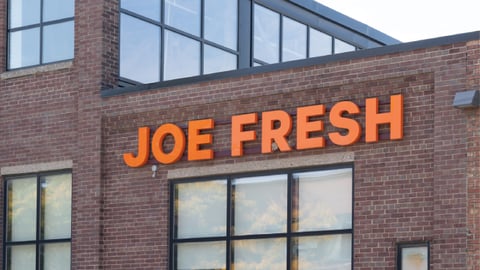The new world of femcare
Hit by soaring inflation and the higher cost of living, global consumers are more motivated than ever to flit between brands in pursuit of value in essentials. And these days, value encompasses more than just a “nice” price but also quality, convenience, transparency, authenticity, sustainability and holistic wellness. Such sentiment is increasingly reflected in product innovations, portfolio design and brand communications in feminine care, a category that most commonly refers to disposable sanitary products such as pads, pantyliners and tampons.
Indeed, consumers today are selective and mindful about their spending. More than half of professionals working in the beauty and personal care space say value for money remains their customers’ most important priority, according to Euromonitor’s most recent Voice of the Industry: Lifestyle Survey. For businesses, this means putting tangible value creation at the forefront of brand positioning, and aligning their offerings and brand narratives with consumers’ priorities and preferences.
Health- and emotion-forward product enhancements and marketing narratives form a key pillar of value creation in femcare. In fact, with a slew of new products, from tampons by U.S.-based Sequel that feature spiral grooves, which allow for even absorption, to period cramp-soothing tampons with optional CBD coating by U.K.-based Daye, businesses, especially insurgents, have been exploring new technologies and format designs to deliver tangible benefits.
Marketing in femcare has also taken a different tone, one that brings products’ health and emotional value – particularly comfort – to the forefront. This is demonstrated in the Playtex launch of Clean Comfort tampons, new packaging from U by Kotex that is focused on ComfortFlex design, as well as the rebranding of U.S.-based brand Cora, which has renamed its period items – The Comfort Fit Tampon, The Peace-of-Mind Pad, The Got-You-Covered Liner.
Meanwhile, as consumers gravitate towards clean and ethical ingredients that resonate across the physical, emotional and planetary well-being axis, more businesses are introducing recyclable or even biodegradable packaging as well as plant-derived raw materials such as organic cotton, bamboo, seaweed and hemp. This is demonstrated by brands such as NIIMA in Canada, Daye in the United Kingdom and Rif Care in the United States, whose period products aim to provide not only efficacy but also sustainability that resonates with eco-conscious consumers. In fact, nearly two thirds of global consumers reported in 2022 that they are worried about climate change and try to have a positive impact on the environment through their everyday actions, according to Euromonitor’s recent International Voice of the Consumer: Lifestyle Survey.
Lifestyle and regimen support offers another key avenue for value creation. With more female consumers adopting an active lifestyle, underwear-style period pads – which typically offer mobility-assuring, comfort-enhancing features such as 360 leak protection, flexible movement and that are form-fitting – are gaining traction despite their higher prices, which many consider a fair trade for security and convenience. Though the segment remains relatively small, its further penetration will likely contribute to the growth of overall pads, including slim/thin/ultra-thin pads, the fastest-growing segment within femcare.
Finally, expansion into adjacent categories that encompass skin, body and mind is another dimension of the value creation strategy. This has led to, and will likely continue to accelerate, a business drive to redefine femcare through a holistic wellness lens. In North America and Western Europe, for instance, skin care in recent years has become a natural extension of the holistic treatment of menstruation, as explored by femcare brands such as Rael in the United States, Blume in Canada and Synk Organic in Australia, and sexual wellness and incontinence care are the next two logical adjacencies to consider for femcare brands, which are already tackling women’s below-the-waist taboo.
The elevated expectations of efficacy, convenience and, ultimately, value among consumers including women, coupled with a more deeply entrenched penchant for wellness, will continue to underpin business strategies to further enhance femcare products in terms of comfort, performance and lifestyle adaptability, as well as to explore adjacent women’s wellness categories in the years to come.
Liying Qian is head of tissue and hygiene at Euromonitor International, an independent provider of strategic market research.
This article was first featured in Canadian Grocer’s November issue.



